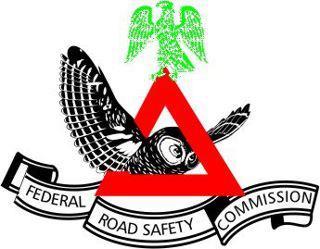The Minister of Works, Power and Housing, Mr Babatunde Fashola, has canvassed “appropriate resourcing and equipping’’ of the Federal Road Safety Corps (FRSC) to reduce carnage on the nation’s highways.
Fashola said FRSC, the country’s lead traffic administration and safety management agency, was in need of more tools, equipment and financial resources to effectively cover the nation’s highways.
He spoke at the opening session of a two-day capacity building workshop on the United Nations Road Safety Legal Instruments on Traffic Signs and Regulations on Tuesday in Abuja.
“ The primary responsibility we have as a government is the protection of lives and property, and that does not start and end with policemen and all the other security apparatus.
“It goes to healthcare, well being and response on our highways such that when accidents happen, as they sometimes will despite all our best efforts to stop them, we must be able to respond to save lives.
“This is the case for resourcing the FRSC, and the resources will include vehicles, motorcycles, communication equipment, and mobile intensive care units, not just ambulances, where you have medical personnel on board, moving victims and stabilising them until they can get to more specialised centres.’’
The minister said there was no reason why the agency should not have at least one rescue helicopter in each of the six geopolitical zones of the country, for a start.
According to him, such investment is worthwhile even if it is just one Nigerian life that is saved by it.
Fashola also stated that adequate resourcing of the FRSC was in line with the Federal Government’s Economic Recovery and Growth Plan.
One of the pillars of the plan, he said, is investment in the Nigerian people, and must include investment that saves every life and gives everybody the opportunity to stay alive.
He said he had been discussing with stakeholders including the Senate in this regard, and that they were favourably disposed to the idea.
The minister differed with the notion that all Nigerian roads are bad, noting that there were good parts and bad parts caused by ageing, abuse and maintenance failure over the years.
“I ask a question: how bad are our roads? Some people have said all the roads are bad, but that is not true. Have we interrogated what percentage the bad portions constitute of the total aggregate?
“Recently, we did some surveys on roads like Otta-Abeokuta. That road is in a very unacceptable condition, but what portion of it is bad?
“The study we undertook recently showed that on the length of 64km what is bad is about 18.5 per cent of the entire road network.
“Do not misunderstand me, one centimeter of failure on any road is bad enough, but I think that if we don’t understand how bad the problem is, we cannot collectively approach it.
“But those who argue that all of the roads are bad are not correct because 18 per cent of 64km, for example, does not support their argument,’’ he said.

